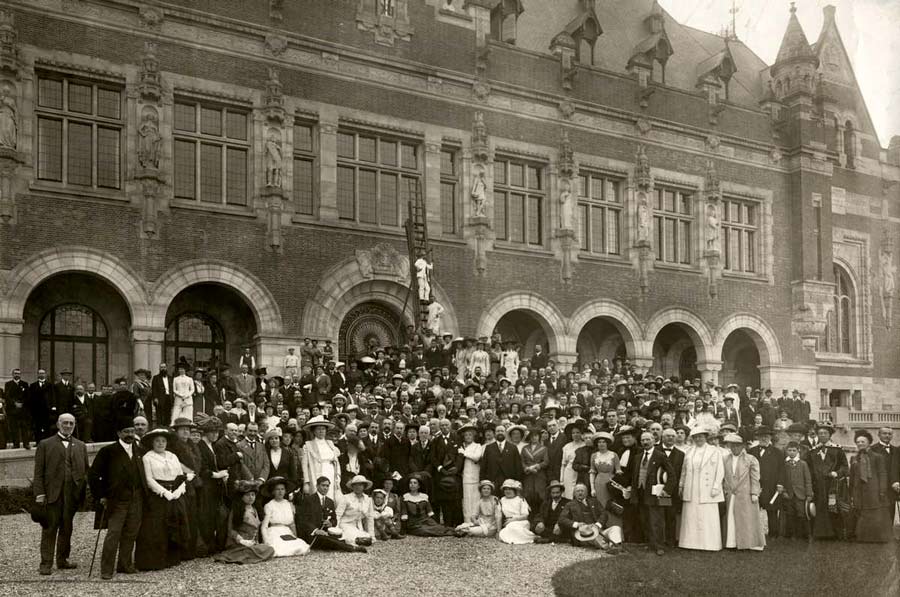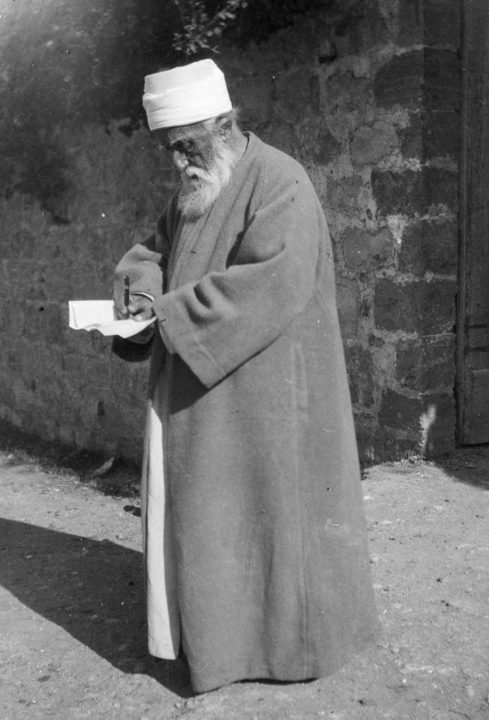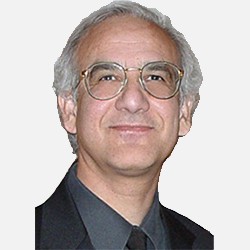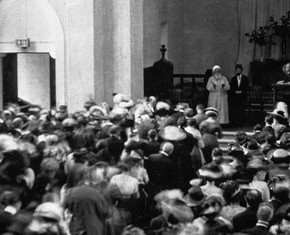The views expressed in our content reflect individual perspectives and do not represent the authoritative views of the Baha'i Faith.
In his celebrated response to letters sent to him from the Central Organization for a Durable Peace at the Hague, representing nine European nations and the United States, Abdu’l-Baha wrote:
… among the teachings of Baha’u’llah is man’s freedom, that through the ideal Power he should be free and emancipated from the captivity of the world of nature; for as long as man is captive to nature he is a ferocious animal, as the struggle for existence is one of the exigencies of the world of nature. This matter of the struggle for existence is the fountain-head of all calamities and is the supreme affliction.
In this reflection we will explore one of Abdu’l-Baha’s historic statements about the meaning of true freedom and liberty. In a previous essay in this series, we discussed Baha’u’llah’s definition of true liberty, in which he equated freedom with the emergence of a new culture where honor and glory emanate not from loving oneself or one’s own particularistic group, but rather in loving the whole world. This beautiful idea was further explored and elaborated, in most novel ways, in the writings of the next leader of the Baha’i Faith, Abdu’l-Baha.
In 1919, close to the end of his life, Abdu’l-Baha wrote the first of two letters to the Organization for a Durable Peace in the Hague, Netherlands – an early international body composed of representatives from nine European countries and the United States, formed for the purpose of achieving global peace. In that letter he discussed Baha’u’llah’s concept of peace, urging the leaders of that supra-national body to implement them. This short reflection precludes a fuller analysis of Baha’u’llah’s and Abdu’l-Baha’s complex theory of peace, but will address a main component of that theory.

One of the essential preconditions of peace, Abdu’l-Baha argued, is the realization of true freedom. Likewise, Abdu’l-Baha defined this new concept of freedom as one of the main teachings of Baha’u’llah – so let’s examine a few dimensions of this novel philosophical and sociological worldview.
Freedom as Liberation from the Bondage of Nature
Following Baha’u’llah, Abdu’l-Baha’s worldview is based on a spiritual interpretation of reality. From a Baha’i perspective, human beings can reflect divine names and attributes, and for that reason, human freedom is realized through the actualization of human potentialities. This self-actualization creates both true freedom and true peace. Such freedom requires emancipation from the laws of material nature, and a life regulated by the laws of spirit. This freedom, therefore, requires two forms of liberation from nature, both external and internal.
Abdu’l-Baha frequently discussed the dynamics of our emancipation from the external confines of nature. Science and technology, he said, provide the means for the realization of this external freedom. Through science and technology humans learn the laws of nature, and through such knowledge they can overcome them. According to nature, for instance, human beings cannot fly, but human reason and the discovery of the scientific principles of flight have provided the basis for overcoming this natural limitation. Humans learned about this law and created airplanes. This way, we humans can become partly autonomous from our immediate environment. In his talk at Columbia University in 1912, and in language which reminds us of future systems theory, Abdu’l-Baha praised reason as the agent which liberates humans from the bondage of nature:
All created things are captives of nature and subject to its laws. They cannot transgress the control of these laws in one detail or particular. The infinite starry worlds and heavenly bodies are nature’s obedient subjects. The earth and its myriad organisms, all minerals, plants and animals are thralls of its dominion. But man through the exercise of his scientific, intellectual power can rise out of this condition, can modify, change and control nature according to his own wishes and uses. Science, so to speak, is the breaker of the laws of nature. Consider, for example, that man according to natural law should dwell upon the surface of the earth. By overcoming this law and restriction, however, he sails in ships over the ocean, mounts to the zenith in airplanes and sinks to the depths of the sea in submarines. This is against the fiat of nature and a violation of her sovereignty and dominion… He takes the sword from nature’s hand and uses it upon nature’s head. According to natural law night is a period of darkness and obscurity, but man by utilizing the power of electricity, by wielding this electric sword overcomes the darkness and dispels the gloom.
However, for Abdu’l-Baha this liberation from the external restrictions of nature by itself is not sufficient for the realization of true freedom.
In fact, unlike some positivistic modern theories which equate freedom with scientific and instrumental rationality, Abdu’l-Baha argued that scientific progress can only lead to true freedom when accompanied by human liberation from the internal demands of nature as well. While emancipation from nature’s external conditions takes place through science and technology, liberation from nature’s internal conditions takes place through emancipation from the principle of the struggle for existence. In other words, human life must be determined by the laws of the republic of spirit, and not by the laws of the coercion and brutishness of the jungle.

If humans regulate their social and cultural life on the basis of the struggle for existence and the model of the survival of the fittest, Abdu’l-Baha pointed out, it reduces humans to beasts of nature. Such a culture inevitably becomes a perpetual culture of war, mutual destruction, and death. Only when humans are born as spiritual beings can they become free. True freedom, therefore, requires a life oriented to love for all, communication, and universal peace. True liberty requires liberation from both nature’s external and internal demands.
Some may assume that Abdu’l-Baha’s idea of freedom as liberation from the bondage of nature represents a negative judgment against nature itself. The truth is the opposite. The natural law of the struggle for existence is praiseworthy at the level of nature itself. The apparent dominance of violence in the realm of nature is in reality another expression of divine wisdom. The consequence of the rule of the struggle for existence at the level of nature is the realization of ecological balance, natural beauty, and the preservation of the harmony and diversity of life in the planet.
However, the problem arises when humans, who are endowed with intellect, try to act in accordance with that same natural law, rather than on the basis of spiritually regulated instincts and restrained desires. The rule of reason without spirit creates nuclear weapons, and unrestrained human consumption leads to the depletion and destruction of the environment. So if humans live in accordance with the law of the struggle for existence the result is not ecological balance. Instead, it leads to the ultimate destruction of humans and the planet we live on.
That is why, in the life of humans the natural law – which is sacred and good at the level of nature – must be replaced by the higher law of spirit and morality.
Liberation from nature’s external conditions is a necessary but not sufficient condition for true liberty. Devoid of liberation from nature’s internal conditions, scientific advancement can actually lead to militarism, destruction of the environment, and the destruction of human civilization. That is why true liberty requires emancipation from a beastly culture. Only internal freedom, the freedom of the human spirit, leads to a balanced world of science and the spirit that protects the environment and respects nature as well.
The Struggle for Existence as Prejudice
Another aspect of Abdu’l-Baha’s novel theory of freedom is his historic discovery that at the level of the social existence of human beings, the law of the struggle for existence appears as the law of prejudice.
According to Abdu’l-Baha, emancipation from nature’s internal demands also emancipates us from all kinds of prejudice. Those various kinds of prejudice cause violence and destruction among human beings. All wars are products of these various forms of prejudice. The elimination of all types of prejudice, therefore, forms the essential precondition for the realization of peace and true liberty in the world. In the same Tablet to the Organization for Durable Peace in the Hague, he wrote:
… among the teachings of Baha’u’llah is that religious, racial, political, economic and patriotic prejudices destroy the edifice of humanity. As long as these prejudices prevail, the world of humanity will not have rest … It has therefore been ascertained and proved that all prejudices are destructive of the human edifice. As long as these prejudices persist, the struggle for existence must remain dominant, and bloodthirstiness and rapacity continue. Therefore, even as was the case in the past, the world of humanity cannot be saved from the darkness of nature and cannot attain illumination except through the abandonment of prejudices and the acquisition of the morals of the Kingdom.
Importantly, the word used by Abdu’l-Baha, translated here as “prejudice,” is a much more complex term in the original language. The term used by Abdu’l-Baha, ta’assub, has complex meanings. It not only means prejudice; it also means the cause of prejudice. The word ta’assub is derived from the root ‘usbah, which means “group.” Ta’assub, therefore, denotes a reduction of one’s identity to a particularistic group. When we define our identities by solidarity with only one group, other groups become enemies or strangers. This particularistic identity causes prejudice – namely biased judgments, double standards, and hatred of others. The realization of true freedom, therefore, is emancipation from the bondage of nature and the exigencies of the struggle for existence. But such bondage is the same as ta’assub, namely defining virtue and honor as loving one’s own group and hating others.
Freedom from prejudice, then, is precisely the way Baha’u’llah defined the concept of true liberty.
You May Also Like
Comments

















True freedom is not then the ability to do anything you want, but the ability to do the right thing, unconstrained by peer pressure, prejudice, vested interest, ignorance and apathy.